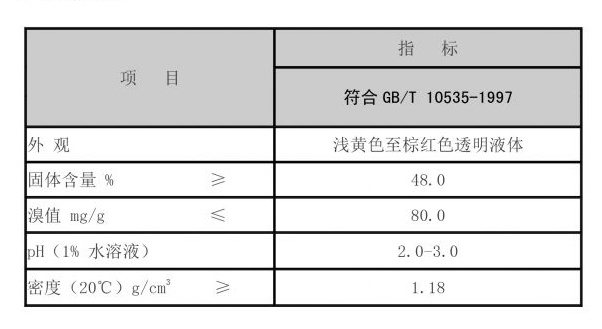industrial flocculant
Industrial Flocculants Enhancing Separation Processes in Various Industries
Flocculants play a crucial role in various industrial processes by facilitating the separation of solids from liquids. These substances are primarily used in applications such as water treatment, mineral processing, paper manufacturing, and food production. By improving the efficiency of separation processes, flocculants contribute to waste minimization, resource recovery, and environmental sustainability.
What Are Flocculants?
Flocculants are high molecular weight compounds that promote the aggregation of fine particles into flocs. These flocs are larger, denser aggregates that settle more quickly than individual particles, making it easier to separate them from the liquid medium. Flocculants can be anionic, cationic, or non-ionic in nature, depending on the charge they carry. The choice of flocculant often depends on the specific application and the characteristics of the particles and liquids involved.
Applications in Water Treatment
One of the most significant applications of flocculants is in municipal and industrial water treatment. In this context, flocculants are used to remove suspended solids, colloids, and contaminants from wastewater before it is released into the environment or reused. Flocculation aids in the agglomeration of particles, allowing for easier filtration or sedimentation. This process not only improves water quality but also supports regulatory compliance.
In drinking water treatment, flocculants help remove impurities such as silt, turbidity, and pathogens. The sedimentation process facilitated by flocculants results in clearer water that meets safety standards. Moreover, the use of flocculants can reduce the amount of chemicals needed for disinfection, making the overall treatment process more efficient and environmentally friendly.
Role in Mineral Processing
Flocculants are essential in the mining industry, where they enhance the separation of valuable minerals from ore. In processes such as flotation, flocculation helps concentrate valuable materials by promoting the aggregation of mineral particles. The result is a higher yield of the desired minerals, which contributes to improved economic viability for mining operations.
industrial flocculant

Additionally, flocculants are used in tailings management, where they assist in the thickening and clarification of tailings ponds. By optimizing the settling of solids, flocculants help reduce the volume of waste and the environmental impact associated with mining operations.
Influence on Paper Manufacturing
In the paper industry, flocculants are used during the paper production process to improve fiber retention and enhance drainage. The presence of flocculants promotes the agglomeration of fiber and filler particles, which results in a more uniform paper product with improved strength and quality. Furthermore, effective use of flocculants can lead to significant reductions in water consumption and chemical usage, contributing to a more sustainable production process.
Innovations and Environmental Considerations
As industries continue to prioritize sustainability, the development of environmentally friendly and biodegradable flocculants is gaining momentum. Traditional synthetic flocculants, often derived from petrochemicals, have raised concerns regarding their long-term environmental impact. Consequently, research into natural and less harmful alternatives, such as biopolymers derived from plant materials or microbial sources, is becoming increasingly important.
These innovations not only focus on improving flocculation efficiency but also aim to minimize the ecological footprint of industrial processes. With stricter regulations and growing public concern about environmental issues, the demand for sustainable flocculants is expected to rise.
Conclusion
In conclusion, industrial flocculants are indispensable in a variety of sectors, enhancing the efficiency of separation processes and contributing to sustainable practices. Their applications in water treatment, mineral processing, and paper manufacturing underscore their vital role in modern industrial operations. As the demand for eco-friendly alternatives grows, ongoing research and development will shape the future landscape of flocculant technology, ensuring that they continue to support efficient and sustainable industrial practices.
-
lk-319-special-scale-and-corrosion-inhibitor-for-steel-plants-advanced-solutions-for-industrial-water-systemsNewsAug.22,2025
-
flocculant-water-treatment-essential-chemical-solutions-for-purification-processesNewsAug.22,2025
-
isothiazolinones-versatile-microbial-control-agents-for-industrial-and-consumer-applicationsNewsAug.22,2025
-
scale-inhibitor-key-solutions-for-water-system-scale-preventionNewsAug.22,2025
-
organophosphonates-versatile-scale-inhibitors-for-industrial-water-systemsNewsAug.22,2025
-
scale-and-corrosion-inhibitor-essential-chemical-solutions-for-water-system-maintenanceNewsAug.22,2025





